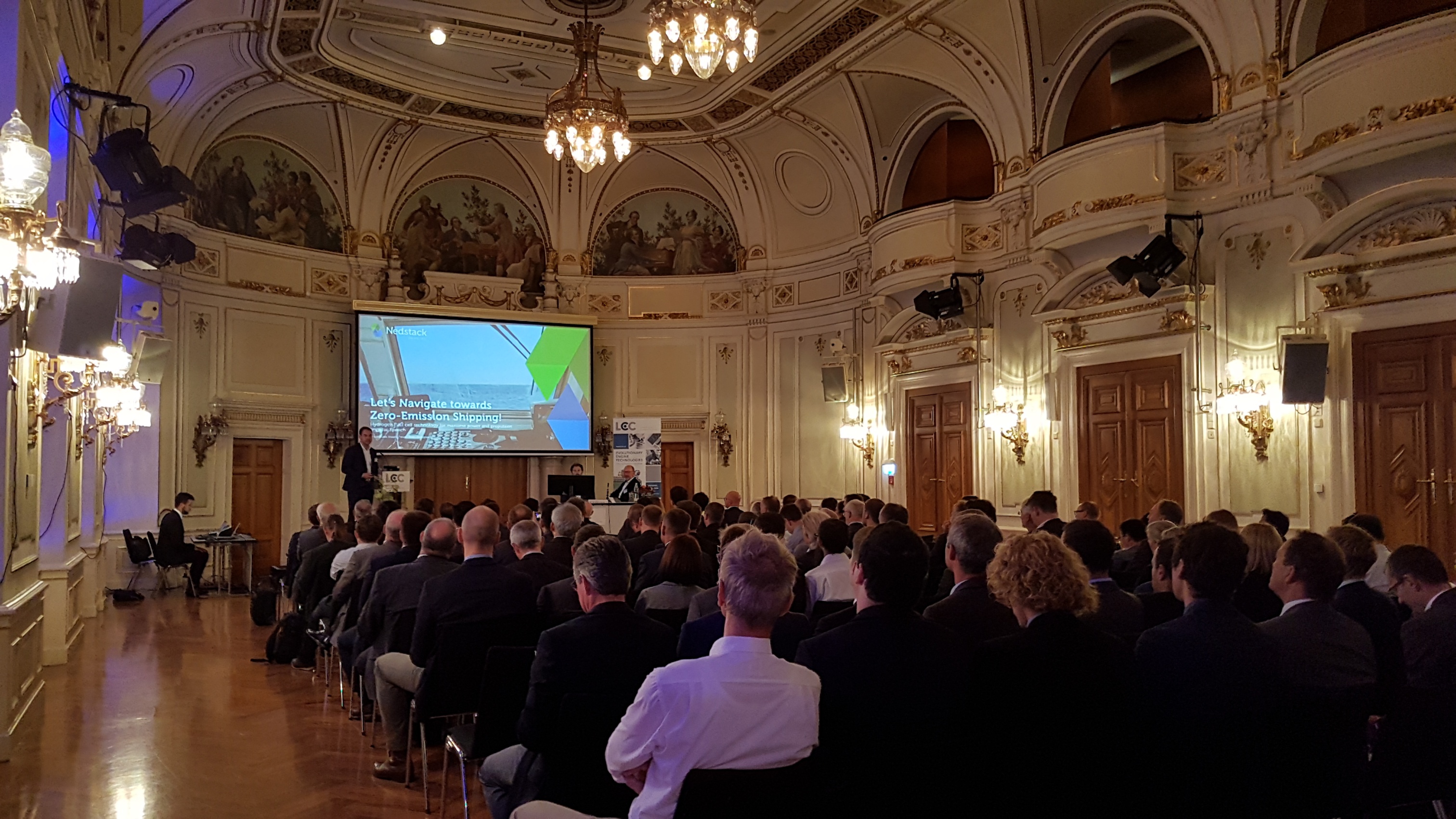GRENDEL - GRENDEL presented at the first Sustainable Shipping Technologies Forum in Graz
29-10-2019

From 26 to 27 September 2019 the very first “Sustainable Shipping Technologies Forum” took place in Graz, Austria. The forum provided an overview of the current developments in the field of emission-free shipping and pointed out potentials for future innovations and cooperation.
Highly innovative international shipping research projects such as HyMethShip, FLAGShIPS, AIRCOAT and many others were presented and discussed. Among these projects as well GRENDEL delivered an overview of activities and in particular stressed the need for the funding, for example through State Aid schemes which are currently under development in the Danube region as one of the GRENDEL activities.
The aim of this first Sustainable Shipping Technologies Forum, which took place in parallel and in close cooperation with the 17th Symposium “The working process of the combustion engine”, was to connect the relevant actors for an emission-free future. With their agenda, both events aimed to underline the necessity and importance of sustainable solutions in the areas of mobility, transport and energy generation.
Mr Peter Crawley from DG Research & Innovation presented funding schemes backed by the EU and informed about the new opportunity for the shipping sector through Innovation Fund (CLIMA), recently opened for the waterborne sector as well.
Mr Karsten Schönewald from Flotte Hamburg GmbH & Co. KG (Port Authority) provided insight into the greening activities of the urban fleet in the port of Hamburg. These follow the step-wise approach, using GTL in the first stage followed up by the renewal plans of the fleet. Beside greening, the digitalisation plays a big role in Hamburg too.
One of the sessions was dedicated to hydrogen as fuel. In the presentation of CBM technologies, the co-combustion of hydrogen and diesel was discussed. The co-combustion offers a combination of fuel flexibility and efficiency with environmental performance. Mr Roy Campe from CMB further explained that the port of Antwerp will soon house the first dual-use hydrogen station, deployed by CBM, servicing both the waterborne and road transport.
FLAGSHIPS project, presented by Ms Laurence Grand-Clement, aims to raise the global readiness level of hydrogen-powered zero-emission waterborne transport by developing and deploying hydrogen fuel cell vessels in two commercial operations and driving the uptake of hydrogen refuelling infrastructure for hydrogen vessels. The hydrogen-powered pusher ELEKTRA shall be the first emission-free inland vessel used primarily in the transport of goods on the Berlin-Hamburg and inner-city transport routes in Berlin. It will use a hybrid drive system, a combination of rechargeable batteries and fuel cells.
The session on Friday 27 September provided insights into new advanced fuels. The project AdvanceFuel, presented by Mr Martti Larmi from Aalto University, is funded by EU in Horizon 2020. The project discusses the advantages and disadvantages of a variety of advanced fuels, like hydrogen (H2), methanol, methane, DME or ammonia, all with their positive and negative aspects.
The project MethaShip (funded by the German Federal Ministry for Economic Affairs and Energy) realised studies on methanol. The conclusion is that methanol can offer a dramatic improvement in emissions reduction across multiple ship types once the IMO has established the statutory framework conditions necessary for an industry-wide reduction of CO2 emissions. “Methanol is a clear, water-soluble, biodegradable fluid and in contrast to other alternative fuels such as LNG, it offers the crucial advantage of being very easy to handle,” told Methanol Institute Chief Representative Europe, Eelco Dekker. “Some technical and financial details still need to be clarified but in the medium term a breakthrough could be possible with methanol as a fuel for a holistic reduction of CO2 emissions.”
Mr Peter Koch, from Western Norway University of Applied Sciences, recapped the Norwegian way towards the zero-emission waterborne transport. Starting from strategies in late 80’, through first LNG-fuelled vessel in 2001 up to nowadays where the country aims towards real zero-emission waterborne transport. The national-wide strategies and policies were from the beginning accompanied by the public finances support, through subsidy schemes addressing various levels of the maturity of solutions (various TRL levels). Examples are Norwegian Regional Research funds (NRF/RFF) addressing the early stages of the maturity aiming at research and development activities, funding support by Enova SF (Norwegian government enterprise responsible for the promotion of environmentally friendly production and consumption of energy) for pre-commercial applications with development and testing. The deployment activities with highly mature technologies (TRL 7-9) are possible through NOx fund.
Overview of projects with their websites:
- Is hydrogen becoming a must-have marine fuel? Return on experience from Maranda & Flagships
- Hydroville – The first classed vessel with dual fuel hydrogen diesel combustion engines
- ADVANCEFUEL – Removing barriers to renewable transport fuels
- AIRCOAT – A bio-inspired passive air lubrication technology to increase sustainability and fuel efficiency of ships
- E-Ferry – Fully electric powered ‘green’ ferry
- TrAM – Transport: Advanced and Modular
- LeanShips – The potential of methanol as an alternative fuel
- SUMMETH – Sustainable Marine Methanol
